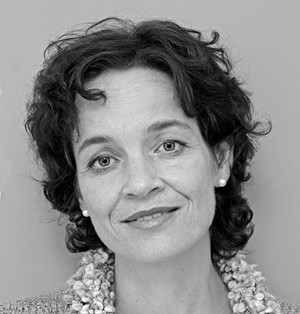Egg donation cannot be seen as equivalent to sperm donation, but should nevertheless be permitted in Norway.

Photo: Espen Røysamb
The first birth to result from an egg donation took place in California in 1984 (1). Now, 33 years later, the Storting will reassess the Biotechnology Act, which regulates egg donations. The Directorate of Health reviewed the Act in 2015 (2), and concluded that medically speaking, egg and sperm donations could be addressed «quite similarly» (3). The same year, the Norwegian Biotechnology Advisory Board stated that egg donations should be permitted. However, they make several reservations: for example, donated eggs must be surplus from treatment involving in vitro fertilisation (4). The Directorate of Health claims that the conditions stipulated by the advisory board will be too strict (5).
The debate on egg donation is not a debate about biotechnology alone; it also involves gender equality, ethics, health tourism and economic priorities. The practical implementation of an egg donation cannot be deemed equivalent to what happens in the case of sperm donation. Every completed, unprotected sexual intercourse between a man and a woman to some extent implies that the man relinquishes the right of disposition to his sperm, and thus donates it. Sperm donations can occur without sexual intercourse and without assistance from the health services. In egg donations, fertilisation takes place outside the body with an egg from another woman. The donor must undergo hormonal treatment, and the eggs must be retrieved under local anaesthesia. In addition, pregnancies resulting from egg donations have a higher rate of complications than pregnancies following other forms of assisted fertilisation (6).
If the man is infertile or is the carrier of a serious hereditary disease, this is an indication for a sperm donation (7). As long as egg donations are not permitted, the opportunities are fewer should the problem lie with the woman. In such cases, egg donation could thus provide a more equal option to couples who want a child.
Kristin Halvorsen, head of the Norwegian Biotechnology Advisory Board, advises against altruistic egg donations, including donation by a sister. She points out that «difficult situations may arise, in which the donor wishes to have closer links to the child than was the intention» (5). This is conceivable, although it does not appear to have represented a major problem (8). It is also conceivable that it will be better for a child to have a certain genetic affiliation with his or her mother and with the extended family than none at all. Genetically speaking, the children of monozygotic twin sisters are just as closely related to their aunt as to their mother. Egg donation is thus a novelty in the sense that the one who bears the child is not the genetic mother, but it is nothing new in the sense that children may have an aunt to whom they are just as closely related as to their mother. Genetic kinship is a mathematical fraction, not a formula, for parenthood.
Donating eggs or sperm is fraught with emotions. A systematic review article found that the psychological effects of egg donation were predominantly positive, even in cases where the donor was known (8). And is there really such a major difference between donating eggs and donating sperm? In Sweden, children born with the aid of donated sperm or eggs are entitled to learn about their genetic parents once they reach the age of 18. In a study that followed 157 egg donors and 113 sperm donors over two years, there were few or no gender differences in attitudes or thoughts associated with this process (9).
The resistance to egg donation is easy to understand. It breaks with the old reality that children who grow up with their biological parents will always know their genetic mother. So far, however, there is little to indicate that being born from an egg donation imposes any greater burden on children than other forms of assisted fertilisation (2). The fact that Norway is one of very few European countries that prohibit egg donation might also indicate that it is time to change course – not to prevent health tourism, but because it is worth listening to countries that are politically and culturally close to us. We have every opportunity to introduce egg donation as a real health service to those who need it, without opening up to commercialisation or inflicting unnecessary pressure on potential donors.
A child is a gift, the opponents of increased technological invasions into fertilisation and pregnancy argue. However, the time when people were passive recipients of children has long passed. A child is a gift that we, at least in the Western world, fortunately can largely decide when, with whom and how many to have. This does not reduce the value of the gift.